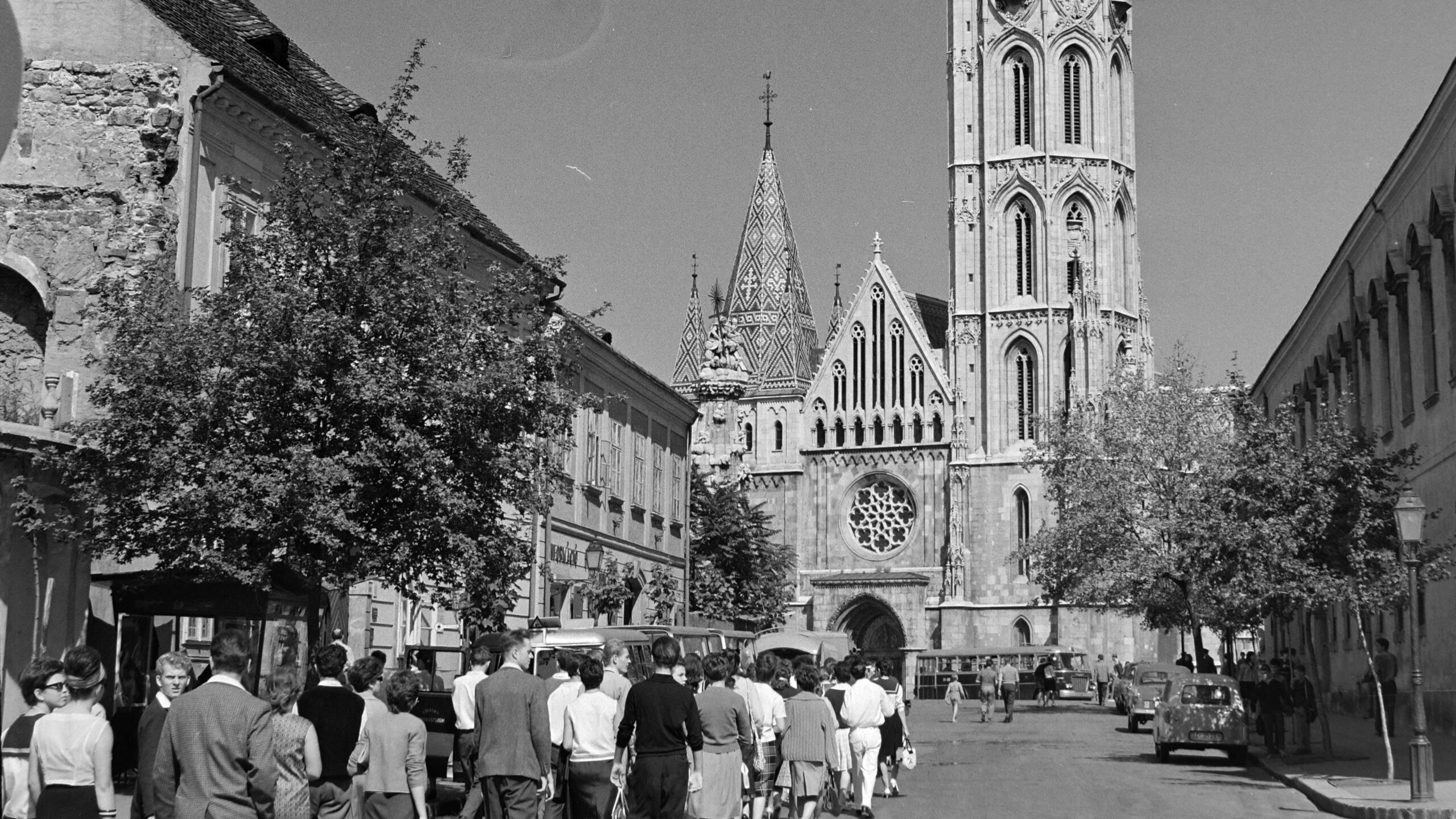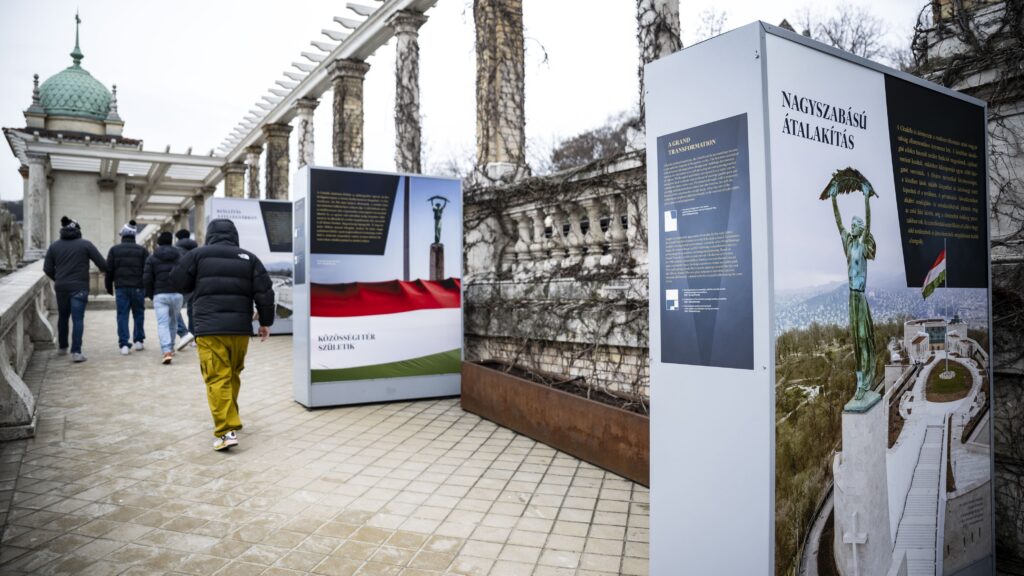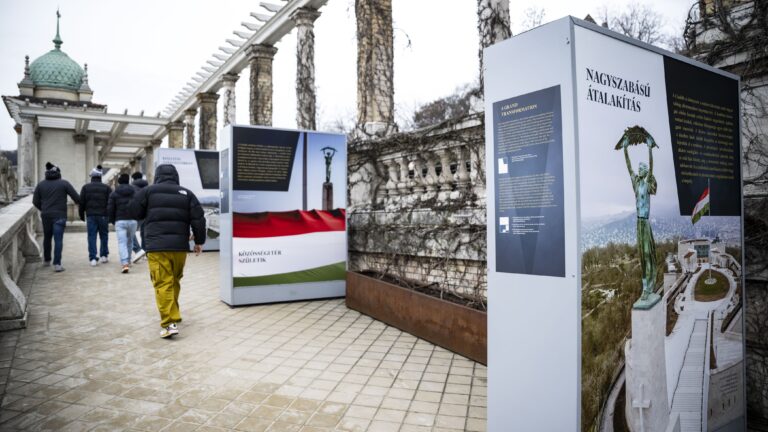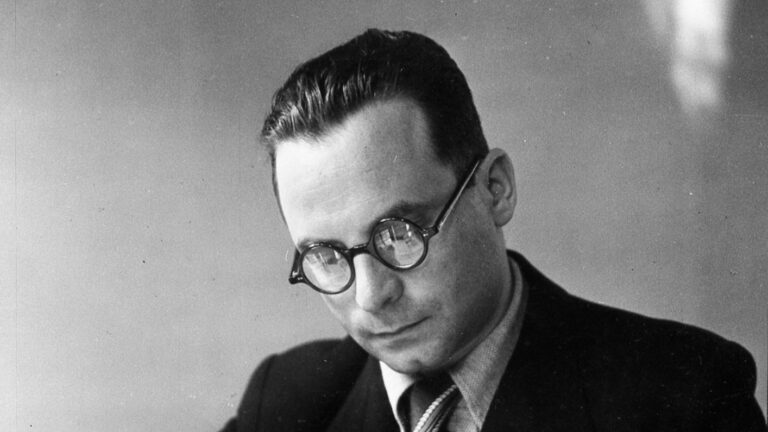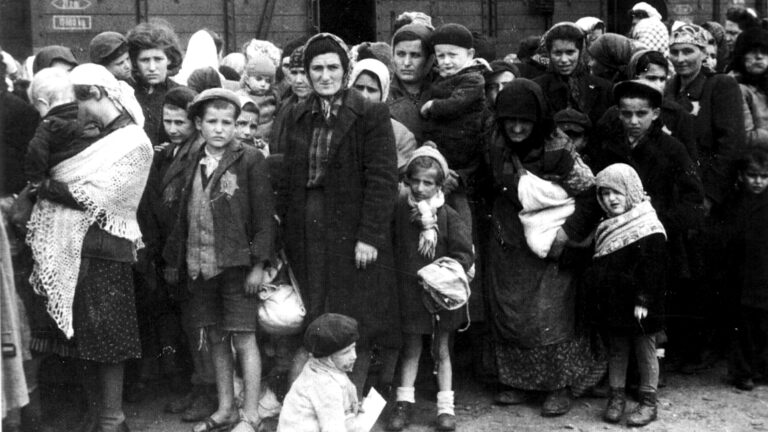The state security services of the Kádár regime kept constant watch over the activities of the Catholic Church in Hungary—and abroad—working from the fixed preconception that the Church was the centre of the ‘international reaction’, whose goal was to overthrow the ‘people’s democracy’ in Hungary. Within this framework, it sought to disrupt the ranks of the faithful through a series of covert investigations, subversive actions, and criminal proceedings. As part of this effort, investigations were also conducted against the community of the Nagyboldogasszony Parish (Matthias Church) in District I.
Here we focus on the surveillance of the Catholic choir operating in the church, and within that, on the story of Sándor Kósa, who was the choir’s conductor from 1962 to 1966. Kósa was born in 1925 in Kőszeg and, in his civilian profession, worked as a répétiteur at the Opera House; he travelled to the church from the 14th District. Kósa could not have known that, when he joined the choir, an agent had already been active in the church for years under the cover name ‘Faragó’, assigned primarily to target parish priest Zoltán Liska. Soon after Kósa joined, he too came under scrutiny, and it was quickly concluded that he maintained contact with ‘hostile’ priests and told jokes critical of the socialist system. It appears that, at the very beginning, a petty offence—Kósa riding his motorcycle into a restricted parade area and then getting into a heated exchange with a police officer—was used as a pretext to approach him.[1]
Although it is not known under exactly what conditions the recruitment took place, one report states that after Kósa’s interrogation, his wife started asking questions. Regarding this, the handler officer wrote: ‘Kósa skillfully handled the “realization” before his wife in connection with the interrogations.’ A few days later, ‘Faragó’ again spoke with Kósa. The handler officer added the following note to the report: ‘He reports on how Kósa behaves after his recruitment, how he tries to deflect those who inquire about his case, so as to provide more detailed clarification about what happened.’
All this took place in the spring of 1963. According to one report, in those days Kósa ‘appeared dejected and nervous, and was unusually quiet.’ Since he continued to make critical remarks about the regime, a 3/a measure (telephone tapping) was introduced at his home. These confirmed the impression that Kósa remained an enemy of the system in spite of his recruitment.
In October 1964, the work file of ‘Péter Fekete’ (Kósa) described his short network career as follows: ‘We have thrown out “Péter Fekete” from our spy network because he is a person of fanatically hostile attitude and disposition. His work was not good. He did not attend his handler meetings regularly, and in every case arrived late. Regarding the tasks carried out, he either brought no report at all, or such meaningless ones that they could not be used. The persons he was assigned to monitor, he presented as if they were friends of our system, and he stated that they took no part in any hostile activity.’ Therefore, Kósa’s surveillance continued at full steam.
‘These confirmed the impression that Kósa remained an enemy of the system in spite of his recruitment’
It appears that the ‘last straw’ came when, following US President Kennedy’s assassination, Kósa had the choir sing mourning songs without any particular justification. In response, in April 1964, Police Captain Ottó Kárpáti from BRFK’s (Budapest Police) Political Department III/c. group proposed ‘that we develop a plan to “disrupt” the choir of Matthias Church, as it includes individuals who harbour deeply hostile feelings toward our system, our party, and the Soviet Union. Those in leadership or other important positions should be held accountable for their statements, and it is recommended that they be removed from their positions.’
Of course, Kósa remained the main focus of attention. Another method was to try to take Kósa’s time away from rehearsals. ‘We could get in touch with the officer responsible for the Opera (sic!) and, through him, arrange for Kósa to be assigned to opera duties at the same time the choir has rehearsals.’
There was also a proposal to try to discredit him using the aforementioned earlier recruitment attempt. ‘Regarding this person, we could spread via operational channels among his church contacts that he previously worked as an agent, so that he will no longer be accepted among these individuals. At the time of his exclusion from the network, a proposal was prepared for this as well.’
However, it seems this was never carried out. On one occasion, they noticed that Kósa had taken planks and iron pipes from construction sites in the Castle District to build the choir’s stairs. The secret police concluded that this was a criminal act, but in the end, he was not prosecuted for it.
‘Regarding this person, we could spread via operational channels among his church contacts that he previously worked as an agent’
It seems that between the summer and November of 1965, the choirmaster was subjected to further police harassment, likely because agent reports suggested he might have German-language ‘reactionary’ literature in his possession. In November 1965, the following report was filed: ‘Kósa appeared unusually tired and nervous. He was pale, impatient even with the orchestra, which is not his habit. Moreover, during the pauses between pieces, he gave the impression of being an overstrained, exhausted person.’
The supervising officer added this comment to the report: ‘The agent…provided a characteristic picture of his condition after the interrogations.’ At this time, the agent’s task was to avoid initiating any politically charged conversation and only participate in what naturally arose.
However, this change in mood lasted only a short time. A few weeks later, ‘the agent…reports that Kósa continues to maintain his hostile views and opinions toward the system. He still refuses to submit to our regime. Anti-communist propaganda and admiration for the West continue in the choir.’ In any case, ‘the investigation succeeded in reducing the choir’s numbers and creating distrust among its members…The goal of realization was partially achieved.’
For chronological reasons, the above events cannot be the same as Kósa’s criminal case, which began in March 1966. According to the investigative recommendation, ‘in front of the members of the Matthias Church choir that he leads, he repeatedly disparaged and insulted the state system of the Hungarian People’s Republic and the Soviet Union, as well as their parties and leaders.’
A house search was conducted at his residence, but only his old Scout ID card was confiscated. His acquaintances were also interrogated; they reported that he told jokes such as ‘Socialism is one step ahead of capitalism, which is teetering on the edge of the abyss.’ ‘The choir members received Sándor Kósa’s political jokes with amusement, and some even occasionally laughed,’ according to one testimony.
The Chief Prosecutor’s Office ultimately closed the investigation, concluding that although the jokes were in poor taste, they were not capable of inciting hatred. In April 1966, Kósa was made to sign a document agreeing to refrain from similar statements in the future.
However, the case did not end there. The new parish priest of the Matthias Church, Father János Tóth, was summoned by the State Office for Church Affairs, where they demanded that he dismiss Kósa. The priest argued that Kósa worked as a volunteer and that he could not fire him, but the authorities concluded that he was merely stalling. They therefore exerted pressure so that Kósa would hand over his duties as choir conductor by 20 August 1966.
‘This can’t happen in 1966 Hungary!’
Tóth informed the choir members that he had ‘received an ultimatum from the Ministry of the Interior’, which caused great outrage—someone reportedly shouted: ‘This can’t happen in 1966 Hungary!’
But it did happen. Kósa was also dismissed from the Opera, leaving him without a job, and he and his wife had to live solely on her salary. He tried to organize performances in the countryside with a few loyal choir members, but the state security followed him there as well and stopped the events through covert means. According to a later report, he became severely impoverished. A few years later, he moved to East Germany, from where he defected, then worked as a répétiteur at the Graz Opera, and eventually passed away in Kőszeg in 2002.
His story is a striking example of what could happen to a religious choir conductor in ‘1966 Hungary’ if he dared to tell political jokes in church.
[1] For all quotes in this article, see the files: Állambiztonsági Szolgálatok Történeti Leváltára, 3.1.2. M-33124/2. and 3.1.2. M-22616. and 3.1.9. V-150833.
Related articles:

